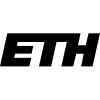Job Description
Electrical engineering and information technology have become an integral part of our digitalised world. Every “intelligent” device is built with the expertise of electrical engineers, who work with electrical and electronic systems ranging from minuscule semiconductor devices to enormous power plants. Mathematics, physics and computer science form the basis of the diverse toolbox used by electrical engineers to invent, develop and build the technology of the future.
Career profile
Many of the findings and products of electrical engineering influence the way our society functions. Most notably, they include smart-phones, navigation satellites, industrial robots, imaging techniques and renewable energies.
By studying Electrical Engineering and Information Technology, students will gain the theoretical foundations and practical skills they need to build a successful career in a wide range of different fields relating to information processing, electronics, energy supply and biomedical engineering.
Electrical engineers work in research and development in many industrial companies both in Switzerland and abroad. Many challenging jobs for Electrical Engineering and Information Technology graduates can also be found in strategy consultancy, sales, marketing and management. Thanks to the versatility of the ETH programmes, their professional skills are also in demand not just in areas such as the aviation and automotive industries, but also in public companies and the service sector.
Bachelor’s degree programme (180 credits)
The first two years of the degree programme focus on building the theoretical foundations in the compulsory subjects. However, practical skills are also acquired from the very first semester through practical sessions and small group projects. In the third year of the programme, Electrical Engineering and Information Technology students can specialise in a focus area and supplement this with electives. A Bachelor’s thesis completes the programme.
General basic courses:
Mathematics, Physics, Computer Science
Basic courses in engineering:
Networks and Circuits, Digital Circuits, Signals and Systems, Electro-magnetic Fields and Waves, Electronic Circuits, Semiconductor Devices
Core subjects for specialisation:
Communication, Computers and Networks, Electronics and Photonics, Energy and Power Electronics, Biomedical Engineering
Practicals, projects, seminars, electives
For detailed information go to the pages in German Elektrotechnik und Informationstechnologie


